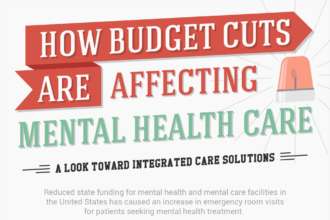As a hospital administrator, one of the most important things you do is make staffing decisions to best serve your most vulnerable clients. In addition to traditional staffing, then, this might include connecting with translators and connecting with local support services. But what does your hospital do to make sexual assault survivors feel safe and comfortable?
Victims of sexual assault often arrive at the hospital in a state of shock and can suffer traumatic flashbacks and symptoms of PTSD for years to come, and this means they require specialized care. What many hospital administrators don’t realize, though, is that there is a class of nurses trained to do just that.
Known as sexual assault nurse examiners (SANE), the nurses undergo additional education to learn how to support assault survivors, document injuries, take rape kits, and provide post-assault care such as HIV prophylactics, STD testing, and pregnancy prevention. SANE trained nurses are a vital part of any hospital’s care team.
Minimizing Trauma
If you talk to survivors of sexual assault, you’ll quickly learn that very few report their assaults to police and only 17-43% of victims seek medical assistance afterwards. Why so few? One of the primary reasons is a fear of being re-traumatized by physicians and law enforcement.
Re-traumatization can occur in a number of ways, including through the types of questions asked in an examination, during the forensic exam itself, or because survivors are often asked to hand over the clothing they were wearing at the time of the assault. This particular indignity can mean assault victims who have just suffered one of the most terrible events of their lives are forced to leave the hospital wearing a gown or covered in a sheet.
SANE trained nurses can help minimize the risk of re-traumatization among victims and help hospitals develop better support protocols through their knowledge and by making connections with community organizations. One Staten Island-based organization, Safe Horizon, works with local hospitals to provide clothing to assault survivors. It’s a simple act that helps restore some dignity to traumatized individuals, but it’s also the kind of detail administrators overlook or aren’t even aware of because they aren’t interacting with survivors on a regular basis.
Creating Support Systems
Another way that SANE trained nurses benefit hospitals is by helping survivors access a complex support system based on what the individuals themselves want – not what society expects. For example, most people expect that survivors will report their assault and seek legal advice, but many survivors don’t want this. While obtaining formal justice can help victims reclaim their lives, some prefer to attend support groups or individual therapy. SANE trained nurses can help connect survivors with the supports of their choosing, rather than dictating a course of action.
A Community Resource
SANE trained nurses typically report greater job satisfaction, despite the stressful nature of their jobs and may earn more money than other nurses because of their specialized training, but from an administrative perspective these nurses are a community resource. Nationwide, there is a shortage of nurses trained to do forensic examinations, which means patients may need to travel hours to receive a proper examination. This places an unnecessary strain on traumatized individuals and may be impossible for the most vulnerable individuals, such as the homeless, impoverished, or foreign-language speakers.
If every community hospital had a SANE trained nurse, healthcare could transform its reputation so that they’re no longer viewed as being hostile to survivors and instead are viewed as the first line of support. Hiring more properly trained nurses could also increase the number of prosecutions, particularly in known-assailant cases. At present, most reported rapes go unprosecuted due to lack of evidence or improper collection of samples. SANE trained nurses have the necessary education to prove an assault occurred. Their care puts an end to the “he said, she said” nature of so many assault cases.
Hiring SANE Trained Nurses
Most hospitals are already facing a serious nursing shortage, which diminishes the quality of patient care overall, so during your next round of hiring, consider adding SANE trained nurses to your staff. You might also consider supporting current nursing staff who are interested in completing SANE training by connecting them with your local International Association of Forensic Nurses chapter.
Any registered nurse with two or more years of experience in advanced physical assessment, such as those who work in emergency services or maternal-child health, can become SANE certified, transforming how your hospital cares for assault survivors. Don’t leave survivors to suffer in silence.







